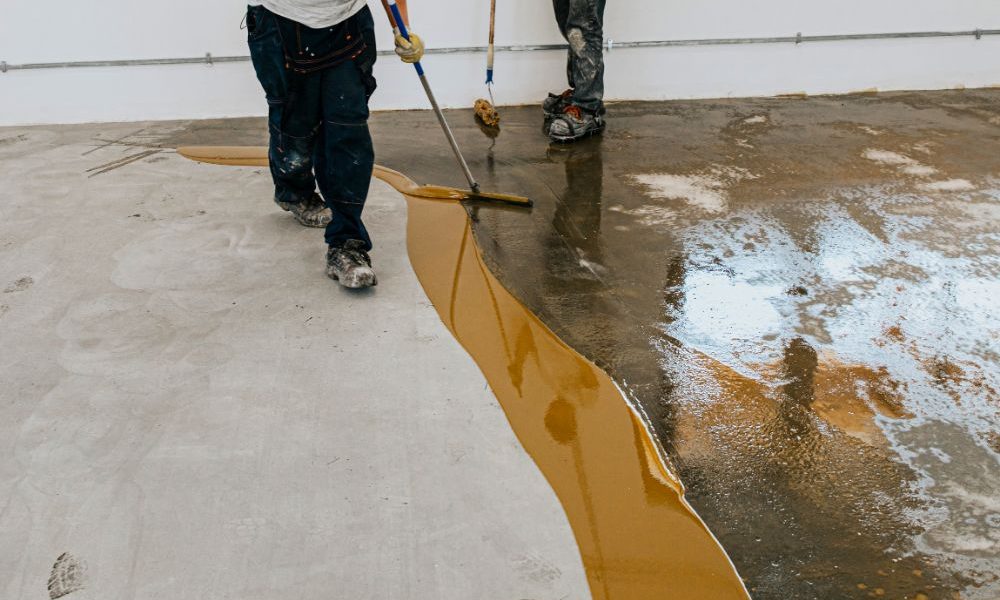Have you ever been astounded by the durability of a concrete surface and wondered what gives it such resilience? Or possibly questioned why despite high pedestrian traffic, your neighbor’s concrete driveway never appears to fade or crack? You can stop puzzling now. The answer, in all likelihood, lies in the judicious use of concrete sealers. But what exactly are concrete sealers? How do they work, and how can they benefit you? To obtain illuminating answers to these questions, keep reading.
Concrete sealers are a form of protection laid down over concrete to defend it from damage, extend its life, provide stability, and enhance its appearance. They are the unsung heroes of the construction world that silently work behind the scenes to keep your concrete looking fresh and flawless. This comprehensive guide will delve into the various types of concrete sealers and their associated benefits.
Understanding What Concrete Sealers Are
Before we dive into the different types, let’s first understand what a concrete sealer actually is. A concrete sealer is essentially a protective layer that is applied over a concrete surface. This protective layer works by blocking the pores in the concrete to reduce absorption of water, salts and, other such chemical substances.
Concrete sealers also improve the overall appearance of the concrete, thus enhancing the visual appeal of your premises. They come in various forms, and the choice you make depends largely on the area of application and desired aesthetics. The rang includes those that provide a high-gloss finish to those that barely alter the look of the concrete.
Classifying Concrete Sealers
Now that we have a basic understanding of what a concrete sealer is, let’s discuss the different types. Concrete sealers are broadly classified into two main categories: Penetrating sealers and Topical sealers.
Penetrating sealers absorb into the concrete to form a chemical barrier that shields against moisture absorption and corrosive substances. On the other hand, Topical sealers form a protective layer on the surface of the concrete that not only blocks substances from penetrating but also adds glory and luster to the concrete’s surface. Each of these categories has specific types that are suited for different applications and desired outcomes.
Deciphering The Benefits of Concrete Sealers
An investment in concrete sealers is a commitment to long-term savings. The potential benefits are numerous, starting from enhancing the appearance of the surface, improving weather resistance, to reducing maintenance costs.
Concrete sealers stave off mildew, mold, efflorescence (a whitish salt deposit seen on the surface of the concrete), and discoloration caused by harsh weather conditions. They prevent premature deterioration thus add years to the life of a concrete surface.
Concrete Sealers: Aiding in Maintenance and Cleaning
Life gets easier when you have a sealed concrete surface. These sealers prevent stains from penetrating into the concrete, thus making cleaning a breeze. Whether it’s your kitchen countertop, driveway, or patio, sealed concrete surfaces can be simply cleaned with a mild detergent or even just water.
Selecting The Right Concrete Sealer
While understanding the benefits, it’s equally important to know how to select the right kind of sealer for your concrete surfaces. The choice largely depends on the location of the concrete surface, the weather conditions of your region, and the type of look you desire.
Conclusion
To sum up, understanding the science behind concrete sealers can be quite empowering. It illuminates the value that these products add to our buildings, structures, and other concrete installations. Whether you desire longevity, aesthetics, or ease of maintenance, concrete sealers offer a significant return on investment. So, the next time you wonder about the excellent condition of a concrete surface, you’ll know there’s more to it than meets the eye – it’s probably the magic of a good concrete sealer!




